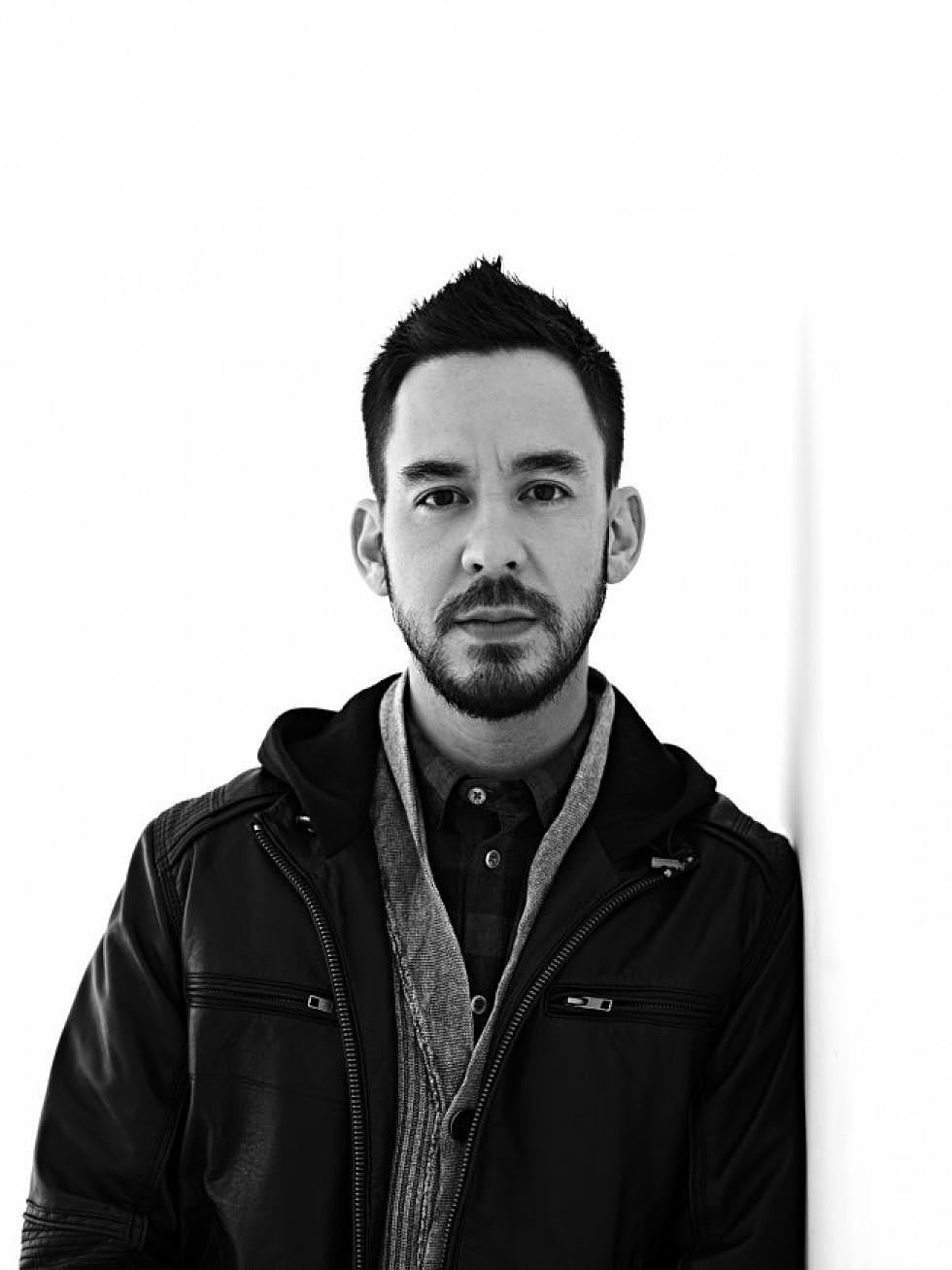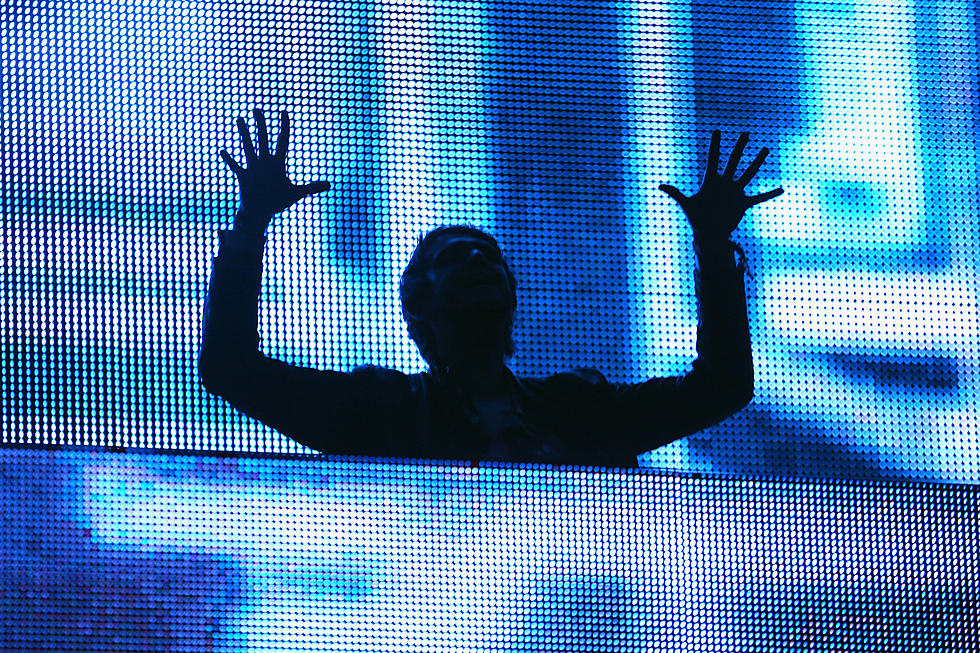
Mike Shinoda of Linkin Park Talks Collaboration, Experimentation and Influence
Some musicians sit in a comfort zone, making songs they know will do well in the music marketplace. Others, on the other hand, leave that comfort zone and experiment, collaborate and innovate. Mike Shinoda has never been comfortable in the comfort zone. Frontman for Linkin Park and Fort Minor, Shinoda is constantly morphing and departing from sounds to go on new musical adventures. Most recently that adventure was a collaboration with Steve Aoki.
"I’ve worked with a lot of different people and stylistically their approaches have ranged all over the place. I think one thing that is great about Steve is that he is really experienced. He knows his stuff. He is also a patient guy. He’s an excited guy with lots of energy but when we were working on A Light That Never Comes things would kind of ebb and flow and Steve really just rolled with it."
Linkin Park is also one of the few bands you will find giving out a remix album to their fans. It all started when they put our their "Living Things" album. They promised the fans that bought the album directly from the band a remix a month for 6 months.
"We started collecting remixes to give to the fans and more and more remixes starting coming in and a lot of them were really great. We had more than we knew what to do with so we basically held on to a bunch of them and then this remix album was created. There’s really a bunch of great stuff on there from Datsik, Killsonik to Money Mark and even a remix from Rick Rubin."
Linkin Park has always taken influence from all corners of the music world. Shinoda says the band has always taken influence from electronic music.
"On our first album we had bits of what, at the time, I guess you could consider electronic influences of jungle in particular. I loved jungle in college. It has really always been a part of the band, a part of our music. When you’re working with songs like ours there’s dozens and dozens of tracks. When we mix a song we can’t just turn everything up, it would sound like shit.
We end up creating a hierarchy and some things get pushed to the front while others get pushed to the back. On various albums, especially on our earlier stuff, the guitars and vocals and drums got pushed up to the front. I think that as we’ve gone on we’ve played with that. For example, on 1000 Suns a lot of the electronic elements really got pushed up to the front while the guitars took more of a back seat. It has really been a fun process. There are a lot of different genres, including electronic music, that are a part of the band."
After Linkin Park's first two albums Mike Shinoda felt the need to continue to expand his musical horizons. He felt limited by what the band was doing and wanted to branch out into a new style. This became Fort Minor.
"Fort Minor really started off as just a fun thing to do. At the time I wasn’t doing as much of a straightforward hip-hop approach with the band. I actually did that when I came back to do Linkin Park stuff.
On the first two (Linkin Park) albums we really did this one signature thing. Then I did Fort Minor because I wanted to do more than that “thing”. When I came back to the band it turned out that everybody was really open to the idea of branching into different styles and making music that didn’t sound like our first two albums. As we’ve gone on we have really just broadened the spectrum of what it means to make music as Linkin Park.
I really don’t feel as much of a drive to create things outside of the band because what we do inside the band is already very diverse. That’s not to say that there couldn’t be more Fort Minor stuff. I think that eventually, at some point it might be fun to bring some more of that stuff together. Just for fans that really appreciated the first album."
Mike Shinoda gets inspired by looking at other genres, too. Not necessarily the music itself but the risk-taking and experimentation. He feels that in rock music there's a lack of energy, a lack of collaborations.
"One of the things that caught my attention in the last few years is that rock music is getting a little soft. It’s not that I don’t appreciate softer alternative and indie bands, in fact it is some of my favorite music, but at the same time once I noticed that there was this absence of energetic rock music out there it got my attention and it’s been something I’ve been sort of obsessed with. Part of that is that a lot of rock artists are kind of, well I don’t know if they are intentionally loners or if they just are uber protective of their bands, their reputation or their fanbase or whatever. All of that being said there aren’t a lot of collaborations going on in rock music, especially in more energetic and heavier rock.
Then you look to EDM and pop and rap music and it’s almost all they do. I kind of feel like it would be nice if Rock would step up and do a little bit of that as well. People just need to be in the right mind state where they are ready and willing to take some risks."
That is exactly what Linkin Park did by collaborating with Steve Aoki.
"I think our fans know that we’re not doing a song with Steve to say to every Linkin Park fan 'If you don’t like Steve then get out of here.' It’s not that. The idea is just to do a really unexpected experiment; two artists who do virtually completely different things getting together. What happens when we do that?"
One of the more iconic songs ever created by Mike Shinoda was Numb/Encore. The mashup of Jay-Z and Linkin Park would go on to become one of the biggest tracks in the early 2000s. Shinoda says the process for Numb/Encore was actually quite simple and everything just fell into place beautifully.
"The beginning of that project was so simple and almost everyone from MTV and Jay’s side of things, we all just fell into it. MTV had gone to Jay and told him they were thinking about doing a mashup show where two different artists come together and play some kind of mashup. Their idea was an episode would be like six different groups. It would be something like three mashups and each of the three would be two of the groups together. So they went to Jay with that idea and asked him who he wanted to work with. He said Linkin Park so Jay’s camp called us.
We thought it would be awesome. Jay happened to have acapellas out at the time so I just did some mashups. He really didn’t even know what he was in for with that. Little did he know I grew up doing mashups. All of the beats I made as I was learning to produce beats and produce music were mashups. So I would take an acapella of Wu-Tang Clan and make a track under it out of samples from Rage Against The Machice or Smashing Pumpkins or Alice In Chains and then some hip-hop breaks and loops and keyboard and whatever. So when they asked me to do a mashup I had three mashups done in 24 hours.
I sent the mashups over to them and they freaked out. The rest is history, everything changed. They decided not to do six different artists but to just do Linkin Park and Jay-Z for the whole episode. Then the episode turned into almost like a one time event because they couldn’t find another one to follow-up."
Mike Shinoda doesn't want to be a personality, he wants to be the music. It is the love for the music that drives him.
"People, on the most basic level, get into music for different reasons. Some people it’s because music is the thing that they love and do, that’s us. We were talking about DJing earlier and that is a great example. Back in the day when everything was vinyl being a DJ was expensive. You had to really love it to do that because you really weren’t making money, you were just spending money. That’s kind of indicative of all our individual approaches. We just love music and love what we do.
It was kind of just a hobby then all of a sudden people started paying attention and we realized we could actually make some money. We realized we could make something bigger, that we could actually be a band and do this for a living. That was always our approach. There are certain people out there who don’t want to be musicians per say, they just want to be famous. They want to make songs that are on the radio, they want to get on a magazine. Everyone always has their own priorities. Ours has always been that first and foremost we love the creative process and we love playing shows."
More From Elektro Daily









